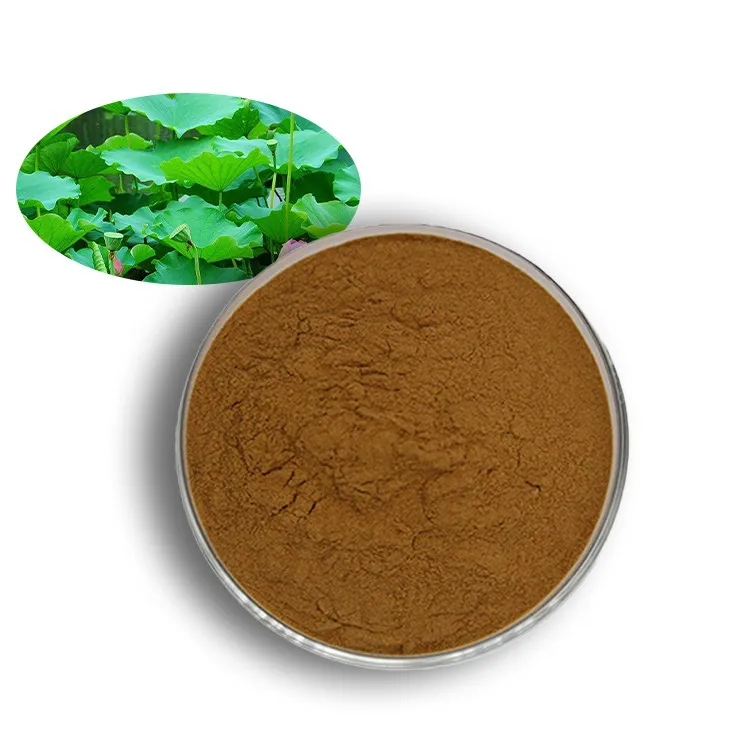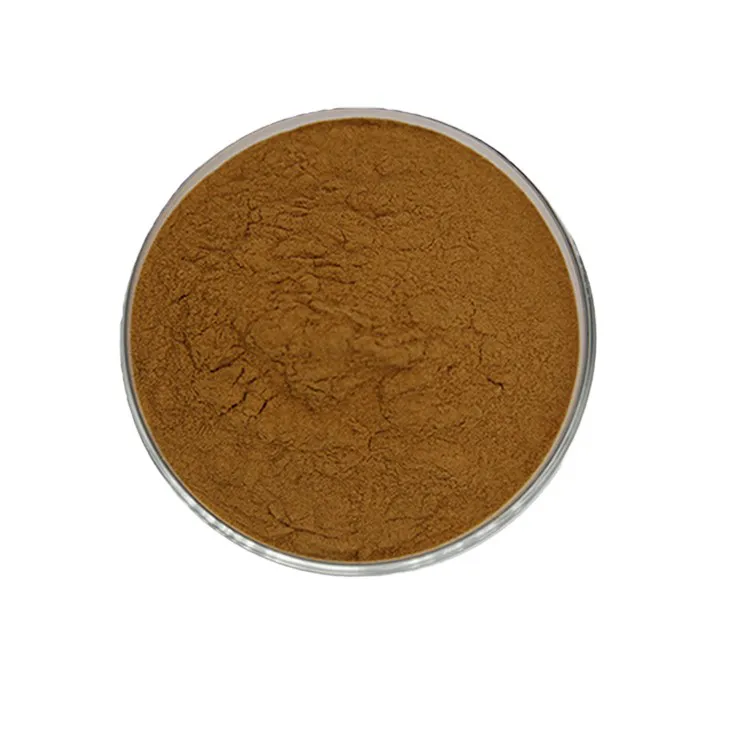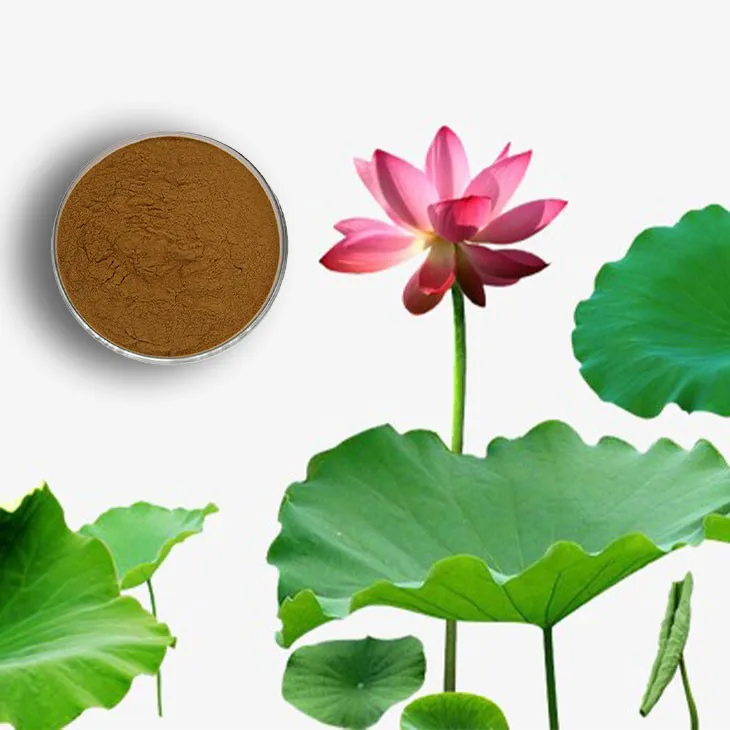- 0086-571-85302990
- sales@greenskybio.com
Is lotus leaf extract beneficial for diabetes? Are these all safe and applicable for diabetic patients?
2024-11-13

1. Introduction
Diabetes is a chronic metabolic disorder that has reached epidemic proportions globally. It is characterized by high blood glucose levels due to either insufficient insulin production or ineffective insulin utilization. Management of diabetes typically involves lifestyle modifications, such as diet and exercise, along with medications in many cases. In the search for complementary and alternative therapies, natural products like Lotus leaf extract have come under scrutiny. The lotus plant has a long history of use in traditional medicine in various cultures. This article aims to comprehensively assess whether Lotus leaf extract is beneficial for diabetes and whether it is safe and applicable for diabetic patients.

2. Lotus leaf extract: Composition and Properties
Lotus leaves are rich in various bioactive compounds. Some of the major components include flavonoids, alkaloids, and phenolic acids.
2.1 Flavonoids
Flavonoids in lotus leaf extract are known for their antioxidant properties. They can scavenge free radicals in the body, which may play a role in reducing oxidative stress associated with diabetes. Oxidative stress is implicated in the development and progression of diabetic complications such as neuropathy, retinopathy, and nephropathy.
2.2 Alkaloids
The alkaloids present in lotus leaf extract may have potential effects on glucose metabolism. Some alkaloids have been shown to influence enzymes involved in carbohydrate metabolism, which could potentially lead to better blood glucose control.
2.3 Phenolic Acids
Phenolic acids are also antioxidant components. They may contribute to the overall anti - inflammatory and antioxidant effects of the lotus leaf extract. Inflammation is another factor closely associated with diabetes, and reducing inflammation may be beneficial for diabetic patients.

3. Scientific Research on Lotus Leaf Extract and Diabetes
Several studies have been conducted to investigate the relationship between lotus leaf extract and diabetes.
3.1 In vitro Studies
- In vitro experiments have shown that certain components of lotus leaf extract can interact with insulin receptors. This interaction may enhance the sensitivity of cells to insulin, which is crucial for glucose uptake. For example, some flavonoids in the extract have been demonstrated to mimic the action of insulin to a certain extent, promoting the translocation of glucose transporters to the cell membrane, thus facilitating glucose entry into the cells.
- Studies on cell lines have also indicated that lotus leaf extract can modulate key enzymes involved in glucose metabolism. For instance, it may inhibit enzymes like alpha - glucosidase, which is responsible for the breakdown of complex carbohydrates into glucose. By inhibiting this enzyme, the rate of glucose absorption from the intestine can be reduced, leading to a lower post - prandial blood glucose level.
3.2 Animal Studies
- In animal models of diabetes, lotus leaf extract has shown promising results. Diabetic rats or mice treated with lotus leaf extract have exhibited improved blood glucose control. For example, in some studies, after a certain period of treatment with the extract, fasting blood glucose levels in diabetic animals were significantly decreased compared to the control group.
- Animal studies have also suggested that lotus leaf extract may have beneficial effects on lipid metabolism in diabetic conditions. It may help in reducing triglyceride and cholesterol levels, which are often deranged in diabetes. This could potentially reduce the risk of cardiovascular complications associated with diabetes.
- Moreover, some animal experiments have indicated that the extract can protect pancreatic beta - cells. Pancreatic beta - cells are responsible for insulin production, and in diabetes, these cells are often damaged. By protecting these cells, lotus leaf extract may contribute to the restoration of normal insulin secretion.
3.3 Human Studies
- However, human studies on the effect of lotus leaf extract on diabetes are relatively limited. Some small - scale clinical trials have been carried out. In these trials, participants who consumed lotus leaf extract supplements along with their regular diabetes management showed a tendency towards better glycemic control. But the results are not as conclusive as those from in vitro and animal studies.
- One of the challenges in human studies is the variability in the composition of lotus leaf extract products available in the market. Different extraction methods and product formulations can lead to differences in the concentration and bioavailability of the active components, which may affect the observed outcomes.

4. Possible Mechanisms of Action
- Enhancement of Insulin Sensitivity: As mentioned earlier, lotus leaf extract may enhance insulin sensitivity through its interaction with insulin receptors and modulation of intracellular signaling pathways related to glucose uptake. This can help cells respond more effectively to insulin, reducing the need for high levels of insulin secretion.
- Inhibition of Carbohydrate - Digesting Enzymes: The inhibition of alpha - glucosidase and other carbohydrate - digesting enzymes in the intestine can slow down the digestion and absorption of carbohydrates. This leads to a more gradual increase in blood glucose levels after a meal, preventing sharp spikes in blood sugar.
- Anti - Inflammatory and Antioxidant Effects: By reducing oxidative stress and inflammation, lotus leaf extract may improve the overall metabolic environment in diabetic patients. Inflammation and oxidative stress can disrupt normal cellular functions and insulin signaling. By counteracting these processes, the extract may contribute to better glycemic control.
- Protection of Pancreatic Beta - Cells: Protecting pancreatic beta - cells from damage or promoting their regeneration can have a significant impact on insulin production. If the extract can preserve or restore the function of these cells, it can help in maintaining normal insulin levels in the body.

5. Safety Considerations for Diabetic Patients
- Toxicity: Generally, lotus leaf extract has been considered relatively safe in traditional use. However, high - dose or long - term use may pose potential risks. Some studies have reported that excessive consumption of lotus leaf extract may cause gastrointestinal discomfort such as nausea, vomiting, and diarrhea. Diabetic patients should be cautious when using lotus leaf extract supplements, especially if they have a history of sensitive stomach or gastrointestinal problems.
- Drug Interactions: Diabetic patients often take multiple medications, such as metformin, sulfonylureas, or insulin. There is a possibility of interactions between lotus leaf extract and these drugs. For example, if the extract enhances the hypoglycemic effect of medications too much, it can lead to hypoglycemia, which is a serious complication. Therefore, it is essential for diabetic patients to consult their healthcare providers before starting to use lotus leaf extract supplements.
- Quality and Purity of Products: The market for lotus leaf extract products is not well - regulated in some areas. There may be variations in the quality and purity of products. Contaminants or impurities in the extract could potentially be harmful to diabetic patients. It is advisable to choose products from reliable sources that adhere to quality standards.
6. Conclusion
In conclusion, lotus leaf extract shows potential benefits for diabetes based on in vitro, animal studies, and some preliminary human studies. Its possible mechanisms of action include enhancing insulin sensitivity, inhibiting carbohydrate - digesting enzymes, reducing inflammation and oxidative stress, and protecting pancreatic beta - cells. However, there are still safety considerations for diabetic patients, such as potential toxicity, drug interactions, and the quality of products. More well - designed, large - scale human clinical trials are needed to further confirm the efficacy and safety of lotus leaf extract for diabetes management. Until then, diabetic patients should approach the use of lotus leaf extract supplements with caution and under the guidance of healthcare professionals.
FAQ:
1. What is lotus leaf extract?
Lotus leaf extract is a substance obtained from lotus leaves. It contains various bioactive compounds such as alkaloids, flavonoids, and polyphenols, which may have potential biological activities.
2. How might lotus leaf extract be beneficial for diabetes?
Some studies suggest that lotus leaf extract may help with diabetes in several ways. The flavonoids and polyphenols in it may have antioxidant properties, which can reduce oxidative stress often associated with diabetes. It may also play a role in improving insulin sensitivity, helping the body use insulin more effectively, and potentially regulating blood sugar levels.
3. Are there any scientific studies supporting the benefits of lotus leaf extract for diabetes?
Yes, there are some scientific studies. For example, in vitro and in vivo experiments have shown that certain components of lotus leaf extract can influence glucose metabolism pathways. However, more comprehensive and large - scale clinical trials are still needed to firmly establish its efficacy in treating diabetes.
4. Is lotus leaf extract safe for diabetic patients?
Generally, in moderate amounts, lotus leaf extract is considered relatively safe. But some people may be allergic to it. Also, if diabetic patients are taking other medications, there could be potential interactions. For example, it might interfere with the absorption or effectiveness of some diabetes medications. So, it is important to consult a doctor before using lotus leaf extract.
5. How should diabetic patients use lotus leaf extract?
Diabetic patients should not self - administer lotus leaf extract without medical advice. If a doctor approves its use, it should be taken according to the recommended dosage. Usually, it can be in the form of supplements, but the quality and source of these supplements need to be carefully considered.
Related literature
- The Potential of Lotus Leaf Extract in the Management of Diabetes: A Review of Current Evidence"
- "Lotus Leaf Extract and Its Impact on Glucose Homeostasis: Preclinical and Clinical Perspectives"
- ▶ Hesperidin
- ▶ citrus bioflavonoids
- ▶ plant extract
- ▶ lycopene
- ▶ Diosmin
- ▶ Grape seed extract
- ▶ Sea buckthorn Juice Powder
- ▶ Beetroot powder
- ▶ Hops Extract
- ▶ Artichoke Extract
- ▶ Reishi mushroom extract
- ▶ Astaxanthin
- ▶ Green Tea Extract
- ▶ Curcumin Extract
- ▶ Horse Chestnut Extract
- ▶ Other Problems
- ▶ Boswellia Serrata Extract
- ▶ Resveratrol Extract
- ▶ Marigold Extract
- ▶ Grape Leaf Extract
- ▶ blog3
- ▶ blog4
- ▶ blog5
-
Organic Tongkat Ali extract powder factory.
2024-11-13
-
How to make powder with ashwagandha extract.
2024-11-13
-
Rosehip extract manufacturers from China.
2024-11-13
-
The best cat's claw extract in nature.
2024-11-13
-
Chinese Dandelion Leaf Extract Suppliers.
2024-11-13
-
Gynostemma pentaphyllum extract
2024-11-13
-
Centella Asiatica Extract
2024-11-13
-
Medicinal Marshmallow Extract
2024-11-13
-
Tormentil Extract
2024-11-13
-
Stevia Extract
2024-11-13
-
Lotus leaf extract
2024-11-13
-
Berberis aristata Extract
2024-11-13
-
Lemon Balm Extract
2024-11-13
-
Yohimbine Bark Extract
2024-11-13
-
Lily extract
2024-11-13




















